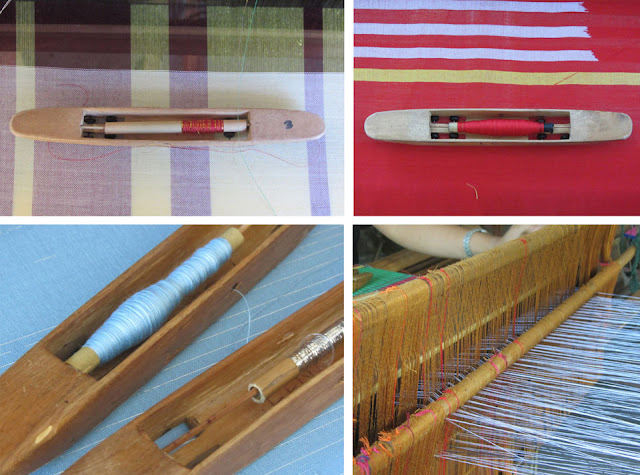Balay Binhi: raising kind and creative individuals
In thinking, there is clarity;
In feeling, there is warmth of the heart;
In willing, there is thoughtfulness.
Steiner
Kindness is the quality of being considerate, generous, thoughtful, and respectful while creativity is the quality of being able to inspire and work with others, unafraid of failure and criticism, pursue innovation and think of solutions.
What the world needs now is an abundance of kind and creative individuals. Where do we start?
I found the answer at Balay Binhi, a Steiner-Waldorf inspired and nurturing parent-toddler program. The program adopted the anthroposophy system, a creative system that uses natural means to optimize the physical and mental health and well-being of a toddler in order to raise a nurturing and respectful person.
Balay Binhi was founded by Aurora Hugo, Asela Pe, and Dr. Ruby Palacios-Grino, parents of students of Gamot-Cogon Waldorf School in Zarraga, Iloilo. Pe is a graduate of Psychology and mother of three kids while Hugo is a graduate of BS Finance and a mother of four kids. Palacios-Grino is a pedia-dentist and now living as a full-time mother in the United States. Pe and Hugo are graduates of Rudolph Steiner Education in the Philippines focusing on Waldorf Early Childhood Education.
 |
| Balay Binhi co-founder Asela Pe during the storytelling session. "In early childhood education, we encourage the use of mother tongue so that children can express themselves," she said. |
Balay Binhi is located at the Palacios Compound in Landheightsville, Barangay Tagbac, Jaro. The family of Doc Ruby was kind enough to let them use this place that is surrounded by trees and plants. They turned the old cottage into a small but cozy home complete with an activity and dining table, a corner for storytelling, and a kitchen. Located outdoors are the play areas, vegetable garden, and animal pen.
Everything here was designed to suit the toddlers’ needs. For example, the curtains are in baby colors like pink, baby blue, yellow and white because they want to maintain the dreamy state of the toddlers.
Readings (or study) plus application in daily life lead to a meaningful experience. So, they conduct morning sessions (practical application for parents and toddlers) and afternoon sessions (theory sessions for parents) in order to marry the two streams. Their morning sessions include creative free play, healthy snacks, morning circle, outdoor play, and storytelling. Parent study follows at 2 pm under the guidance of pediatrician Dr. Gardose every Saturday.
Balay Binhi holds four blocks: Summer (April-May), Gardening Block (July-August), Thanksgiving Block (October-November), and Nurture Block (January-February). Allow me to share my experience with them below.
 |
| Balay Binhi co-founder Aurora Hugo with son, Sunny prepare corn to be boiled for snacks |
 |
| Balay Binhi co-founder Dr. Ruby Palacios-Grino |
1. Parents and Teachers as Role Models
Truth, great ideas, innovations, and discipline, when applied with kindness and gentleness, are usually well received. When parents use a harsh or angry tone when instilling discipline, children ignore it and this leaves the adults feeling frustrated. Additionally, children who grow up with gentleness, become gentle adults themselves.
At Balay Binhi, “Tita Au” and “Tita Asela” talk to the toddlers in a gentle and singsong voice. The kids obey without putting up a fight!
During a knitting activity, two kids fought over a ball of yarn. In a gentle tone, Hugo reminded the two about sharing.
As for the activity, Pe said, “Finger knitting prepares their hands for writing. At this age, we do not force children to learn how to write. But when the time comes, their hands are ready,” said Pe.
We were told that we cannot judge a book by its cover, but for early childhood education where cognitive development is happening, appearance counts. So, Hugo and Pe wear flowy skirts to portray a mother’s image on the child. “This way, the children see you as a solid person; someone who is whole,” said Hugo.
2. Responsibility and Competence
Doing household chores teaches children how to be responsible. It is also a perfect opportunity to develop their competence. They also learn many things such as helping others and Math.
While Pe was washing the dishes, two-year-old Isabella Bascos stopped finger knitting and asked Pe if she can join. Pe said “yes”. A few minutes later, I could hear them counting the plates at “one, two, three, four....”.
So, the next time your toddler offers to help with a chore, don't be too quick to say "No."
3. Compassion for Animals
While the kids were busy with finger knitting, there were a few ants on the table. Sunny, Hugo’s son pointed to them. In a singsong voice, Pe greeted the ants “good morning” and the toddlers followed suit. After that, they let the ants be.
The "titas" also allow the children to feed the animals such as ducks and goats. They also play with them.
4. Growing Food and Empathy for Food Producers
The parents and toddlers tend to a vegetable garden located just near their cottage. Instead of the traditional straight cut plot for the garden, Malou Tigulo, also a Gamot Cogon parent, introduced a circular plot because the foundational years of the child involve circular motion.
“Through gardening, children learn the hardships that a farmer goes through before their produce becomes food on your plate. They planted blue turnip, citronella, lemongrass, alogbate, dahon sibuyas, herbs and ginger,” Hugo said.
“We tailor-made the wheelbarrow and rake for them. We let the kids carry pails because this activity builds their muscles,” she further said.
Additionally, to instill gratitude, their prayer before a meal includes a blessing for our food producers.
5. Better Food Choices
Food preference develops at a young age, so instead of giving children spaghetti and hotdogs that are unhealthy, kids and parents at Balay Binhi snack on vegetables, boiled corn, banana, or sweet potato.
“We chose these kinds of food because we do not want the kids to be associated right away with sugar. This way, they will not crave sugar as adults. Then, healthy eating will become their lifestyle. For example, my son Sunny does not eat meat,” said Hugo.
6. Creativity, Freedom, and Courage
We often hear parents screaming, “No, you will fall!” whenever a child plays on the swing or on the slide. It's no wonder why we have adults who are afraid to take risks or grab opportunities.
Brian Vandenberg, an American psychologist said that a child explores a new object before he/she plays with it. This exploration-play-application sequence is the child’s way of determining if the object is safe to play with. So, do not worry, your child is smart.
Toddlers consider Balay Binhi as heaven because here, they can play a lot. In fact, their older siblings go with them so that they can have the time of their lives in this place, too.
It is through play that toddlers' creativity is enhanced. They have a sandbox where toddlers have the freedom to create what they like. Here, they will develop skills that they can apply to other situations.
Using the balance beam, climbing rope, and swing, the kids learn how to balance their bodies. At first, their parents guide them but they eventually become independent.
Some parents are afraid to let their children out in the rain, but at Balay Binhi, they encourage it. "If children are in full gear, they can play freely under the rain. For example, the movement of the water teaches them about gravity,” Hugo said.
7. Communication Skills
Balay Binhi uses mother tongue – Hiligaynon – when communicating with the toddlers. “In early childhood education, we encourage the use of mother tongue so that children can express themselves. By seven years old, you can already introduce another language,” said Pe.
Here is one song in Hiligaynon that teaches them about our environment:
Dali na magkaptanay
Sa atun mga kamot
Ibayaw sa kalangitan
Kaupod sa kahanginan
Nag abot ang ulan
Naligo ang kasapatan
Nabsa ang duta
Namuhi ang talamnan
Nagbutlak ang adlaw
Kabulakan nagtuhaw
Mga bata nagsinadya
Nagayuhom kag nagakadlaw!
8. School and Home Connection
The activities were designed to make the children well and vibrant. So, Hugo recommends that whatever is learned at Balay Binhi be applied at home.
Ma. Theresa Latade-Basco, mom of Isabella, agrees. “Every morning after she wakes up, Isabella goes to our garden. She does the same in the afternoons. She is a nature lover and she does not throw tantrums,” Basco said.
If we want to raise kind and creative individuals, where do we start? By investing time to nurture parent-child relationships, understanding our children's needs and capabilities, and armed with this awareness, allow them to reach their full potential./Kathy Villalon/Photos courtesy of Balay Binhi
* * *
You too can be part of this parent-toddler bonding and learning experience. For more information, you may contact Au Hugo at 09985797273 or send a message through their Facebook page: Balay Binhi. Happy parenting!












